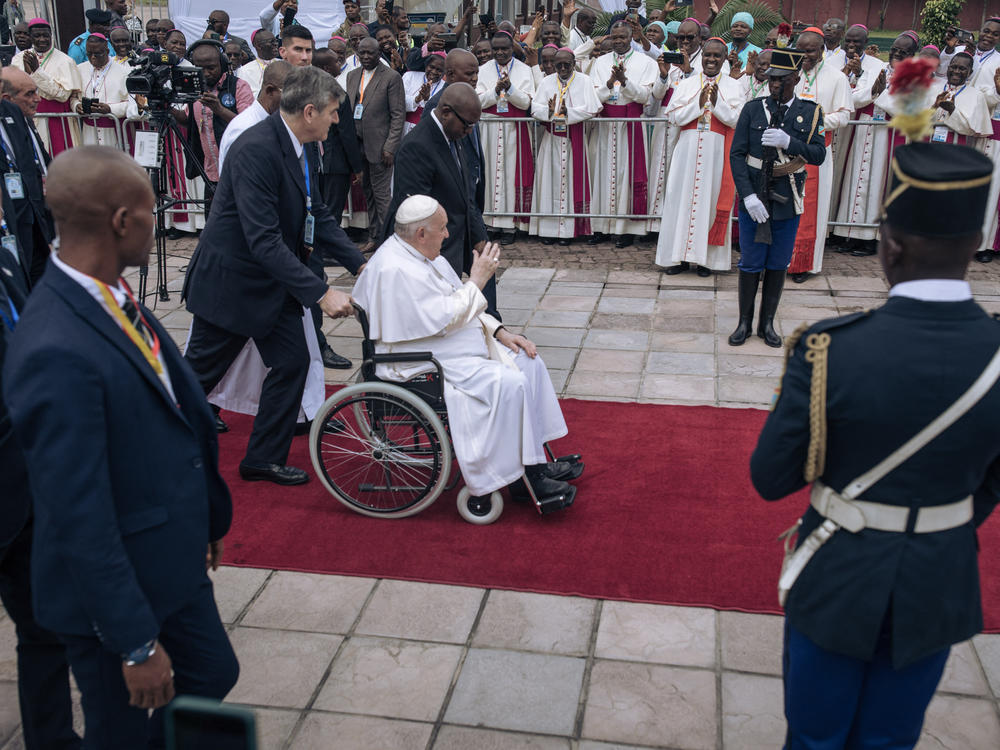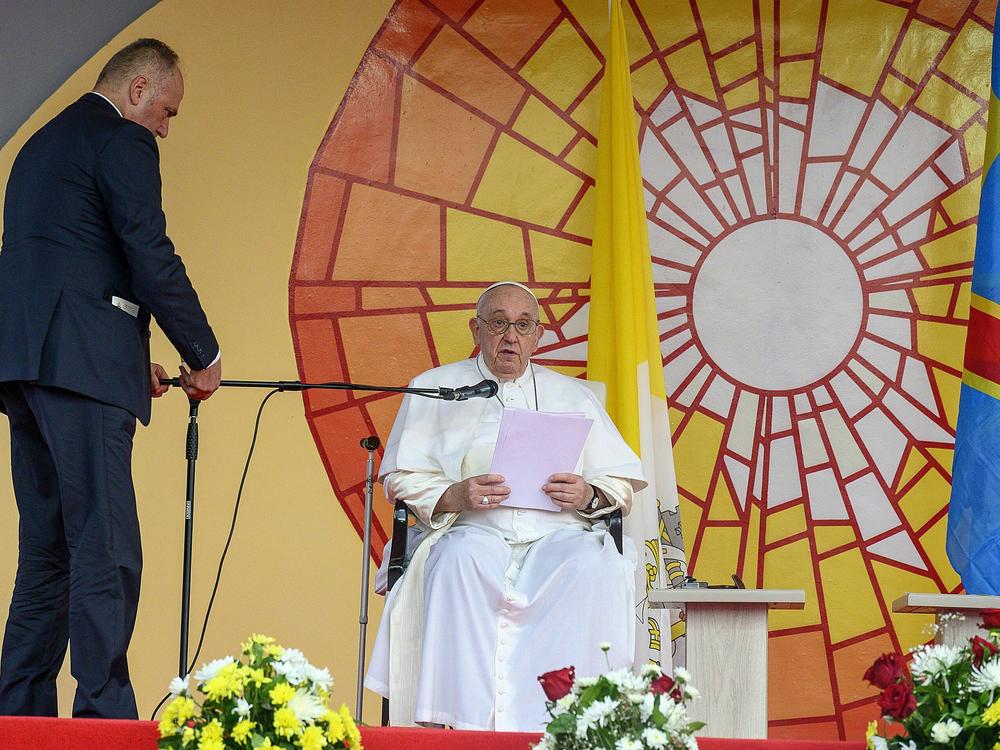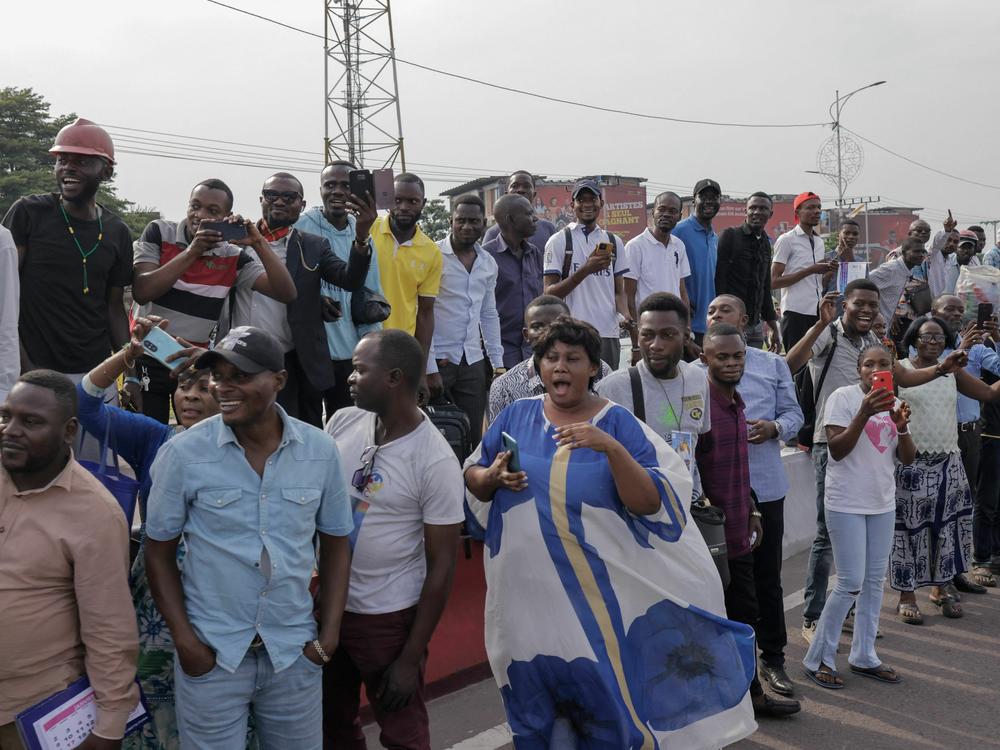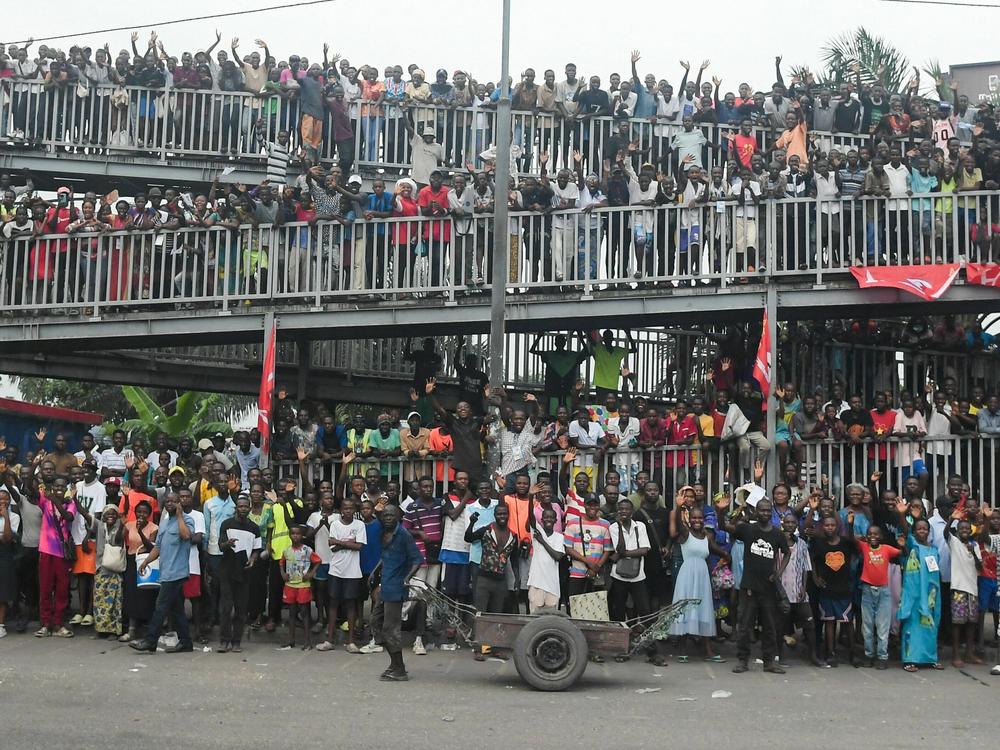Section Branding
Header Content
Pope Francis performs a high-wire act as he courts followers in Africa
Primary Content
Welcome to a new NPR series where we spotlight the people making headlines — and the stories behind them.
The progressive pontifex is visiting parts of Africa this week, and must fulfill a balancing act that looks towards the expansion of his church and the ideological clashes that are coming up along the way.
Who is he? Someone looking towards the future.
- Pope Francis has arrived in the Democratic Republic of Congo for a four day visit, which will be followed by a trip to South Sudan.
- The 86-year-old Argentinian was cheered on by thousands as he traveled from the airport into the DRC capital of Kinshasa on Tuesday.
- The two African nations with large Catholic populations have faced immense violence, displacement and civil unrest in the past decades, a reality this visit hopes to highlight globally.
- This is the first papal visit to the DRC since 1985. Nearly half of the 95 million people in the country are Catholic, and it plays an important role in the pope's presence on the continent.
What's the big deal? The pope made headlines last week after giving an interview to the Associated Press in which he decried the criminalization of homosexuality. The move surprised many given the Catholic Church's track record on the issue. (Although he later reiterated that Catholic moral teaching says any sexual act outside of marriage is a sin)
- The pope will be making his journey to South Sudan alongside the Archbishop of Canterbury Justin Welby, whom The Guardian reported is already facing criticism from senior Anglican Church leaders in the country for "failing to defend biblical truth."
- But one LGBTQ advocate who advises the Vatican says the pope is committed to shifting the church's relationship with their community.
- The official purpose of the pope's trip is to address violence and congregate with victims, hold masses, and lift spirits. But as numbers for faith goers continue to dwindle in the West, the church also sees Africa as a source for the future of the Catholic population.
- A Gallup poll from 2021 shows that America's Christian majority is on track to end, so visits like these may become more crucial and frequent in the future.
What are people saying?
NPR correspondent Emmanuel Akinwotu is following the trip. He spoke to Morning Edition about some of the tension at play.
"The African church is more socially conservative on certain issues, such as around sexuality and divorce. And broadly, the clergy in Africa are not as fond of him, maybe, as they were of the more conservative predecessor, Pope Benedict."
Akinwotu also delved into why the trip matters for the church's numbers.
"This is where the church sees much of its future. 20% of the world's 1.4 billion Catholics are here on the continent, and it's the fastest growing part of the Catholic Church. And as it grows, it's going to have a greater sway on its identity. You know, anyone who's attended mass in the West and here in many parts of Africa knows that Catholicism here usually brings a different energy and sense of spirituality.
For his part, the pope is sticking closely to the script, saying in his address in Kinshasa:
"It is a tragedy that these lands, and more generally the whole African continent, continue to endure various forms of exploitation. The poison of greed has smeared its diamonds with blood ... Hands off the Democratic Republic of the Congo! Hands off Africa! Stop choking Africa. It is not a mine to be stripped or a terrain to be plundered."
So, what now?
- The pope will continue his journey in the DRC, conducting masses and meeting with various leaders.
- On Friday, he will head to South Sudan, embarking on a similar journey of meeting with leaders and followers.
- Pope Francis continues with his journey of 'synodality', a process that calls for the input and participation of members of the church to speak on issues and reforms they would like to see.
Learn more
- For more background, read NPR correspondent's Emmanuel Akinwotu's article: Pope Francis is in Democratic Republic of Congo, its first papal visit since 1985
- For more analysis, this Goats and Soda piece by Malaka Gharib in 2019 gives a solid background: Pope Francis comes to Africa with a vision. Will it stick?
- An interview with Juan Carlos Cruz: Pope Francis' LGBTQ comments are not surprising but sincere, gay Vatican adviser says
Copyright 2023 NPR. To see more, visit https://www.npr.org.
Bottom Content







